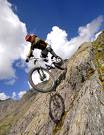 Nearly five years after High-Definition (HD) televisions flooded the Indian market, viewers are finally set to get a taste of high-definition television viewing . This, as HD-enabled MPEG 4 set-top boxes that enable HD content to play on these televisions, were so far absent in the Indian market.
Nearly five years after High-Definition (HD) televisions flooded the Indian market, viewers are finally set to get a taste of high-definition television viewing . This, as HD-enabled MPEG 4 set-top boxes that enable HD content to play on these televisions, were so far absent in the Indian market.The Tamilnadu based DTH player, Sun Direct, which claims to be the second largest DTH player in the country with an active subscriber base of 3.1 million, has altered the scenario. By launching Sun Direct HD, the player, which will continue to offer its non-HD DTH services, has become the first service provider in India to offer high-definition viewing television services.
The less than two-year old company, which has so far incurred ‘expected’ cumulative annual losses of Rs. 450 crore and is looking to break-even in the next four to five years, is banking on the niche HD service as one of the offerings that will help in achieving its target of three million additional customers in FY 2009-’10.
Though Tony D’Silva, COO, Sun Direct, admitted at a press conference held in Mumbai that the penetration of DTH is higher and semi-rural and rural areas where cable network faces several hindrances as compared to metros like Mumbai and Delhi, he added that target clients belonged to Segment A and B in metros and big cities.
Justifying the decision to offer HD-enabled MPEG 4 set-top boxes imported from Samsung to the viewers at a cost of Rs 10,000, D’Silva said, “The HD-viewing experience is definitely a niche offering. With LCD sales set to touch the 1.5 million mark this financial year, we are looking at capturing 20 per cent of these LCD owners for our subscriber base. As for the next financial year, the government’s decision to offer a HD broadcast of the 2010 Commonwealth Games should popularise the format to a great extent.
Also, as we have seen in the past, LCD televisions as well as the HD set-top box are bound to see a fall in prices, thus attracting more customers. As for the monthly fees, it is an affordable Rs 100, available as an addition to our basic packs.”
For those new to the term, high-definition viewing typically refers to five times sharper picture quality; a more effective, CD-like sound quality in the form of 5.1 channel Dolby and a 16:9 aspect ratio that allows for wide-angle viewing and thus makes the viewer’s more ‘real’.
However, contrary to the belief of most anticipating it would be adventure and lifestyle channels as well as news channels that would make for initial HD content in India, it will be Tamil and Telugu movie channels, one each, that will serve as the first HD broadcasters in India.
Elaborating on the content plan, D’Silva said, “We are looking at launching the Sun Direct HD in two phases that will be spread out across the ongoing financial year. In the first phase, we will be able to launch four channels without increasing our transponder capacity.
These four channels include two movie channels, one each in Tamil and Telugu, offering HD-compatible films from SUN TV’s library to kick-start operations. In fact, we plan to add four new movies every month to this already well-stocked library.” Not a surprising strategy when 85 per cent of the DTH player’s clientele are viewers in South India.
However, having started its pan-India roll-out in September last year, it has also entered into an agreement with the National Geographic Channel (NGC) for bringing one of its HD channels onto the platform. Though the NGC is in the process of acquiring a license for facilitating HD broadcast for four of its channels – Nat Geo Wild, Nat Geo Music, Nat Geo Adventure and Nat Geo HD in India, limited transponder capacity will see Sun Direct HD going ahead with just one for its first phase.
A plan to develop a library for Hindi films shot on HD and subsequently initiating an exclusive channel for the same is on the anvil as well. But this is likely to take anywhere between three to six months, admitted V. Narayan, Head-Marketing, Sun Direct.
As for the second phase, for which the provider will have to get permission for increasing transponder capacity, a clear content strategy is yet to be derived upon. Perhaps, news channels like INX news, which have shifted to the HD format and channels like Star TV (which opted for HD for the latest version of Mahabharata), could make for potential choices.


















